Ian Melin-Jones
Valmet will supply a new Advantage DCT tissue production line to Alas Doradas in El Salvador
Valmet will supply an Advantage DCT100HS tissue production line, including a de-inking plant and an extensive automation package, to Alas Doradas in El Salvador. The order also includes a Valmet Performance Center agreement to support efficient production with Industrial Internet. The new tissue line will fulfill Alas Doradas’ demand for new capacity of high-quality tissue products in the region. The start-up is planned for the first half of 2021.
The order is included in Valmet's orders received of the fourth quarter 2019. The value of the order is not disclosed.
“Our cooperation with Valmet started with the rebuild of our existing machine where the press section was upgraded with an Advantage ViscoNip press combined with Advantage ReDry technology. With the results achieved, we are convinced that Valmet’s technology is what we need to differentiate from competition and become the frontrunner in the Central American tissue market. Even more important is the collaboration with a reliable partner as Valmet. We see this as the first step in a long-term partnership. Valmet has met and exceeded all expectations as a reliable partner during our cooperation,” says Paul Ekman, CEO, Alas Doradas.
“To be chosen as preferred partner to Alas Doradas is an important statement for us. We appreciate our relationship greatly. The new Advantage DCT tissue machine will be equipped with all the latest technologies which shows that our role as technology leader and advisor fulfills customer’s needs in the important South American market”, says Kent Nika, Sales Director for South America, Tissue, Valmet.
Both companies are looking forward to the future with a shared aim – to realize Alas Doradas’ expansion plan and provide high-quality tissue products to their customers.
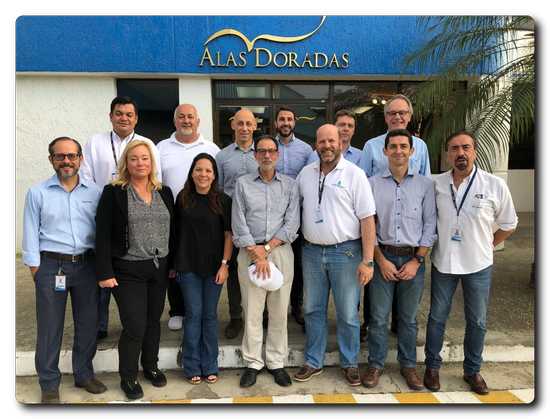 Alas Doradas’ and Valmet’s team
Alas Doradas’ and Valmet’s team
Technical information about the delivery
The new tissue machine will have a width of 2,8 meters and a design speed of 2,000 meters/minute. It will add 35,000 tons tissue paper per year to Alas Doradas’ current production of high-quality toilet tissue, napkins and kitchen towels.
Valmet's scope of delivery will comprise a tissue production line featuring complete Deinking plant and an Advantage DCT 100HS tissue machine. The machine is equipped with OptiFlo headbox and Valmet cast iron Yankee cylinder as well as the Advantage technology including ViscoNip press, AirCap hood, WetDust dust system and SoftReel reel. The delivery also includes an extensive automation package with Valmet DNA, Valmet IQ quality controls, Industrial Internet applications, Valmet Performance Center agreement and tissue line training simulator. Engineering, supervision, training, start-up and commissioning are also included in the delivery.
Chatbots and Augmented Reality are the future (present) of industrial maintenance
There are many tools in the modern digital age capable of increasing the efficiency of businesses operations, personalizing the communication with workers and customers and ensuring an advanced and streamlined interaction between humans and machines. Two of the most recent tools to be adopted by the manufacturing industry are chatbots and augmented reality (AR).
How Chatbots and Augmented Reality work
 Industry 4.0 Chatbot and augmented reality are the future present of industrial maintenanceChatbots are communication softwares that allow the interaction between man and machine by using natural language thanks to a so-called conversational interface, eliminating the need of interaction through programming languages. These softwares are therefore able to understand users’ questions and respond accordingly.
Industry 4.0 Chatbot and augmented reality are the future present of industrial maintenanceChatbots are communication softwares that allow the interaction between man and machine by using natural language thanks to a so-called conversational interface, eliminating the need of interaction through programming languages. These softwares are therefore able to understand users’ questions and respond accordingly.
Augmented reality is a technology that allows workers, thanks to the so-called overlay, to “enhance” the real world field of view by superimposing data, information, and diagrams onto it by using smartphone and tablet displays or wearable devices such as head-mounted displays (HMD).
The role of Chatbots and Augmented Reality
The chatbot market is expected to reach a staggering $1.25 billion worldwide by 2025. Chatbots have been used until now usually for customer support, allowing companies to connect more easily with clients 24/7, but they can also be used by the manufacturing sector to:
- manage supplies and inventory;
- aid with order fulfilment and delivery;
- simplify supply chain communications;
- enable maintenance crews to check the conditions of machinery and equipment in the workplace;
- facilitate maintenance crews operations.
The augmented reality market is also booming and is expected to grow to nearly $19 billion worldwide by 2024. This technology is being used to:
- train plant workers;
- improve worker productivity during machine installation, monitoring, and troubleshooting by providing them with real-time information so they can make adjustments/changes as they work;
- improve the product design process by providing a visualization of the product in context and collaboration between parties that are separated geographically;
- facilitate inspection and maintenance.
As we can see the many uses of chatbots and augmented reality can help a company significantly improve overall operations, product quality and, ultimately, profits.
Chatbots and AR in Industrial Maintenance: the main benefits
These two technologies allow workers to gather information quickly and test maintenance scenarios, all while working directly with the machine. The benefits of using chatbots and augmented reality in industrial maintenance are many, including:
- fewer human errors;
- faster execution of maintenance and repairs;
- fewer machine breakdowns;
- less machine downtime;
- reduced maintenance costs;
- improved operational speed and productivity;
- better regulatory compliance;
- higher profits.
With that in mind, let’s take a closer look at how chatbots and augmented reality can achieve these goals.
Chatbots and AR for Tissue and Nonwovens Production Line Maintenance
Like we said in previous articles[1], thanks to Industry 4.0 the machines on the tissue and nonwovens production lines can be outfitted with dozens, even hundreds of sensors that are constantly transmitting operational data in real-time.
When wearing or using augmented reality devices, maintenance workers can have the data coming in from the machinery overlaid on their field of view. These can be environmental data, such as temperature and pressure, and machine-specific data, such as speed. Thanks to this interactive information, workers can identify operational errors and faulty parts and plan a predictive maintenance schedule that will help minimize machine breakdown while keeping them operating at optimal efficiency. They can also spot problems on the production line that need to be dealt with immediately, before they cause a disruption to production.
Read more: 4 Tools for Tissue and Nonwovens Machines to Reduce and Optimize Idle Times
Chatbots support augmented reality by allowing workers to ask for information for a specific machine, such as the availability of a required spare part or access to the operating manual to determine the best course of action for repair. The information requested will be displayed via augmented reality.
Integration is the Key
The integration of data is a key element to ensure a fully operational system of industrial maintenance is in place. To achieve this, the company needs a machine-and software-independent solution capable of gathering the data from every machine on the production line. These data will be integrated, analyzed and then displayed on a computer, mobile device, or augmented reality device, allowing the remote operation of a production line and an efficient maintenance process.
Read more: Cloud Computing and Integration with Machine and Corporate Applications
Chatbots and AR are here to help you boost productivity
Companies within the manufacturing sector need to bring their technological presence to the next level to survive in today’s competitive climate. Ultimately, Industry 4.0 technology, combined with chatbots and augmented reality, will help tissue and nonwovens companies remain competitive by obtaining high quality products while reducing costs.
For more information about the various tools capable of boosting productivity on your tissue and nonwovens production line, please take a look at our eBook “5 Industry 4.0 Tools that Boost Productivity in the Tissue Paper and Nonwovens Industry”!
BREAKING NEWS: Paper Mill evacuated due to chemical Leak
A Chemical leak at a Artic Paper in Munkedal Sweden in the morning of Wednesday 8th Jan 2020
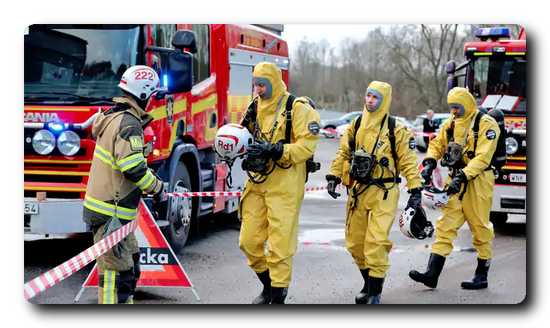 Hazmat crew are on site at the paper mill in Munkedal to investigate the leak
Hazmat crew are on site at the paper mill in Munkedal to investigate the leak
"We are looking into what happened with the correct equipment, to see what form of chemicals have leaked from a machine says Peter Gustafsson from the Fire Department."
The papermill has now been evacuated and two people have been treated for chemical effects by ambulance personnel also on scene.
Göran Lindqvist site manager at the paper mill:
- Right now, a cleanup is underway. Preliminary is was a mix of two different chemicals that were labeled incorrectly. Then it became a chemical reaction. An estimated 50 liters has been leaked, he says.
MORE to follow....
source: expressen.se
Willamette Falls Paper Company Launches reHARVEST™

New sustainable paper line uses wheat straw pulp, a first in the U.S. coated paper industry
Willamette Falls Paper Company Inc. announces the launch of reHARVEST coated, envelope and offset, a paper product family made with 10% wheat straw fiber. The reHARVEST papers are domestically made, readily available and offered at a competitive price.
Recent process technology developments have enabled the production of high-quality papermaking fibers from wheat straw agricultural waste. What was previously removed from the field as waste or even burned is now collected, pulped into high-quality papermaking fiber and available for use in paper products. The pulping is done at a recently commissioned wheat straw pulping plant that generates zero effluent and zero solid waste. The use of this agricultural fiber reduces field burning and takes the pressure off forests. Finally, the wheat straw fiber has a lower carbon footprint and uses less energy than conventional wood pulping processes. The reHARVEST product family incorporates this agricultural waste fiber into 24# envelope, 60# and 70# offset and 80# and 100# gloss and matte coated paper grades while maintaining the key quality and performance specifications for which Willamette Falls Paper Company is known. The paper grades are available in web rolls and priced competitively for truckload orders in Q1.
“We are thrilled to be the first coated paper mill to offer non-wood grades made in the U.S. and sourced with local agricultural fiber, in this case, straw,” says Phil Harding, Director of Technology and Sustainability at Willamette Falls Paper Company. “Our long-term focus is sustainable papermaking and releasing reHARVEST is a huge step toward this goal. The use of agricultural fiber sources is a key part of our strategy.”
“Willamette Falls Paper Company facility, staff and external consultants are actively collaborating in their research and development, bringing this paper mill into the 21st century. Collectively, they are breaking down barriers for customers who have long hoped for these types of solutions to pulp availability in the manufacturing of commercial and industrial papers,” said Kris Grimshaw, Print Production Manager at Scentsy, Inc.
Artificial intelligence develops Swedish forestry industry in new collaboration
ForestX and Tenfifty have initiated collaboration to develop services for the forest industry within the fields of artificial intelligence (AI) and machine learning (ML). The aim is to show how new technology can be used operationally to optimise, rationalise and simplify processes within the Swedish forestry industry. First up is a pilot project for Sveaskog.
Both ForestX and Tenfifty are based in Gothenburg, Sweden and work in different specialist areas of IT. Tenfifty customises AI solutions and ForestX works on digitisation of the forestry industry, including the wood, pulp and paper industries.
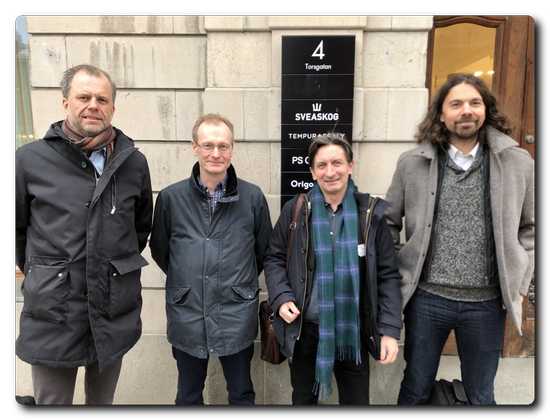 Photo (from left) Anders Bjurström, Tenfifty, Christer Ranvald, Sveaskog, Christer Lindqvist, ForestX and David Fendrich, Tenfifty initiate pilot projects regarding AI and machine learning for the forestry industry
Photo (from left) Anders Bjurström, Tenfifty, Christer Ranvald, Sveaskog, Christer Lindqvist, ForestX and David Fendrich, Tenfifty initiate pilot projects regarding AI and machine learning for the forestry industry
“The Swedish forest industry has much to gain from the possibilities of AI. The area is enormous and exciting. Our ambition with Tenfifty, a specialist in the field, is to find ways that can change approaches within the industry. It is important to prioritise and invest in processes that create the best benefit for the forestry industry,” says Christer Lindqvist, ForestX’s founder and marketing manager.
First up is a pilot project for the customer Sveaskog.
“We see great advantages in technology. Integrating AI as part of an operational flow is what we are looking at initially as part of the project,” says Christer Ranvald, project manager at Sveaskog.
The parties also see opportunities in the pulp and paper industries.
“ForestX has the requisite expertise to achieve major improvements in the forestry industry – one of most important industries for Sweden and the future. Together we can apply AI and machine learning where they create the best optimisation effects,” concludes Anders Bjurström, Tenfifty’s CEO.
Kemira rated as top 1% for sustainability by global rating platform EcoVadis
Kemira has been awarded with the Gold level rating by the global sustainability rating platform EcoVadis. With a total score of 75 out of 100, this puts Kemira among the top 1% of companies in the world.
Companies scoring between 62 and 100 receive the Gold rating and make up the top 5%. This is the fifth consecutive year that Kemira has achieved a Gold rating.
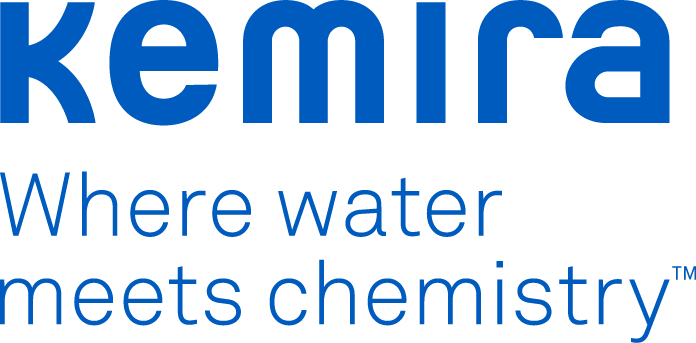 This score reflects Kemira’s long-standing commitment to sustainability and transparency. It gives confidence to our customers that they are protected from upstream supply chain risks and shows our stakeholders that we act on the full breadth of sustainability issues.
This score reflects Kemira’s long-standing commitment to sustainability and transparency. It gives confidence to our customers that they are protected from upstream supply chain risks and shows our stakeholders that we act on the full breadth of sustainability issues.
“At a time when customers and the public are increasingly expecting companies to act decisively on sustainability issues such as climate change, we find this recognition of our dedication to science and comparability of performance metrics very encouraging,” says Rasmus Valanko, Director, Corporate Responsibility.
Already more than half of Kemira’s revenue comes from products and solutions that improve resource efficiency for its customers. Add to that the fact that Kemira’s core business is in developing technologies and solutions to help recycle and reuse water, and the case is clear: Kemira is making a major positive impact on sustainability.
“Sustainability is an integral part of how we do business in Kemira. It contributes to our profitability and it’s what differentiates us in the market,” adds Jari Rosendal, President & CEO.
EcoVadis is a collaborative platform providing sustainability ratings and performance improvement tools for global supply chains. The EcoVadis methodology framework assesses companies' policies and actions as well as their published reporting related to the environment, labor and human rights, ethics and sustainable procurement. The EcoVadis methodology is based on the international sustainability standards of the Global Reporting Initiative, United Nations Global Compact (UNGC), and ISO 26000.
Amazon Papyrus Chemicals new Thai plant
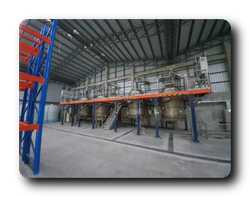 Production AreaOn 7 Jan 2020, Amazon Papyrus Chemical, a leading Asia-based specialty chemicals company, has announced the official operation of their brand new Thailand production and integrated office facilities at Bangkok, Thailand. Chief Executive Officer, Mike Grundy was interviewed and introduced Amazon’s latest expansion to support their impressive sales growth in Asia. He mentioned this is an important investment for Amazon to support the future growth of their businesses in South-East Asia countries and to support their ever growing customer base.
Production AreaOn 7 Jan 2020, Amazon Papyrus Chemical, a leading Asia-based specialty chemicals company, has announced the official operation of their brand new Thailand production and integrated office facilities at Bangkok, Thailand. Chief Executive Officer, Mike Grundy was interviewed and introduced Amazon’s latest expansion to support their impressive sales growth in Asia. He mentioned this is an important investment for Amazon to support the future growth of their businesses in South-East Asia countries and to support their ever growing customer base.
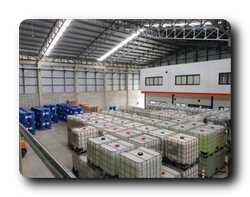 Finished Goods Storage AreaDuring the Grand Opening, Mike expressed his excitement and important decision of their investment to build production capability and footprint in Asia. The new Thailand Plant was designed with over 600MT/month capacity by one shift and would support both local sales and export to other Asia countries. We also built the new plant with environmental and sustainability in mind. Thus, we have built the plant to maximize use of natural light, automatic air ventilation fans, solid waste baler, waste water collection system and energy saving air conditioning. The new Thailand plant has demonstrated the implementation and support of Amazon’s social responsibilities and sustainability business practices.
Finished Goods Storage AreaDuring the Grand Opening, Mike expressed his excitement and important decision of their investment to build production capability and footprint in Asia. The new Thailand Plant was designed with over 600MT/month capacity by one shift and would support both local sales and export to other Asia countries. We also built the new plant with environmental and sustainability in mind. Thus, we have built the plant to maximize use of natural light, automatic air ventilation fans, solid waste baler, waste water collection system and energy saving air conditioning. The new Thailand plant has demonstrated the implementation and support of Amazon’s social responsibilities and sustainability business practices.
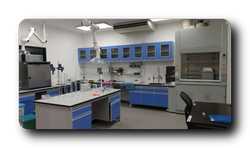 QC/QA LabWe have incorporated a Customer Analytic laboratory and a sophisticated QA/QC lab in the facilities to better support our customers in Thailand and the rest of Asia. Finally, Mike emphasized that Amazon will continue to invest and is seeking to expand their production footprint and upgrade their India plant in near future. This will support their strong business growth and development into other specialized industries besides Pulp and Paper.
QC/QA LabWe have incorporated a Customer Analytic laboratory and a sophisticated QA/QC lab in the facilities to better support our customers in Thailand and the rest of Asia. Finally, Mike emphasized that Amazon will continue to invest and is seeking to expand their production footprint and upgrade their India plant in near future. This will support their strong business growth and development into other specialized industries besides Pulp and Paper.
Walki Group strengthens the Zero Waste Future Platform and licenses Earth Coating technology from Smart Planet Technologies
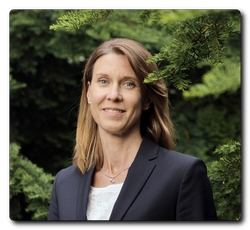 Walki Group has entered into a license agreement with Smart Planet Technologies, for the use of Earth Coating™ in a number of next generation environmental packaging applications. Earth Coating™ is a plastic reduction technology providing superior performance and improved recyclability for all types of plastic, paper, and paperboard packaging applications.
Walki Group has entered into a license agreement with Smart Planet Technologies, for the use of Earth Coating™ in a number of next generation environmental packaging applications. Earth Coating™ is a plastic reduction technology providing superior performance and improved recyclability for all types of plastic, paper, and paperboard packaging applications.
With this technology Walki takes a big step towards a zero-waste future. Today above 80% of our products are made out of renewable or recyclable materials. Our goal is to reach 100 % by the year 2030.
“The technology agreement will contribute to accelerating some of the developments Walki is working on and further expanding our versatile Zero Waste Future Platform providing sustainable barrier solutions for our customers”, says Annika Sundell, Executive Vice President, Innovation
The license agreement is valid for the European markets and covers seven product application verticals, spanning from board packaging to flexible packaging.
Willamette Falls Paper Company is Making Natural Kraft Paper from Agricultural Fiber

Natural kraft paper is now available as an extension of the reHARVEST line
Willamette Falls Paper Company Inc. announces a new grade offering as part of the reHARVEST™ family of products. reHARVEST is now available as natural kraft paper. Initially, Willamette Falls paper will be producing natural kraft paper using a minimum of 30% agricultural fibers, in this case, wheat straw. Natural kraft paper uses include flexible packaging applications such as paper bags, pouches, and poly-coating basestocks.
The reHARVEST natural kraft paper met typical bag strength tests and have been successfully converted and printed in trials. An additional benefit is that the bags offer a bright golden color with no fiber bleaching, a unique attribute of the straw fiber. The natural kraft paper is FDA compliant and will be available in 30# to 70# basis weights (49 to 114 GSM). Willamette Falls Paper has reconfigured the mill to dedicate one machine to brown grades and two machines to manufacture both high-bright coated and uncoated legacy grades. Commercial production of the natural kraft grades is estimated to start at the end of January.
“With so many states, like Oregon, working to reduce the use of plastic bags, we are excited to be able to offer a more sustainable choice in paper and packaging,” says Phil Harding, Director of Technology and Sustainability at Willamette Falls Paper Company. “Using straw pulp in our production – from an agricultural waste product – offers a unique opportunity to add an innovative solution for sustainable paper options. The mill has a long-term goal of developing natural kraft grades with up to 100% straw fiber.”
Package Containers, Inc. is proud to partner with Willamette Falls Paper Company converting the reHARVEST paper into their paper bag line. “We believe the reHARVEST paper can take our already industry-leading sustainability story to even greater heights,” said Dave DeMots, CEO of Package Containers, Inc. “Willamette Falls Paper has created a paper that not only meets industry needs but also breaks new ground using agricultural waste wheat straw as a fiber source. Retailers and consumers are asking for products that offer a lower environmental impact and this is a major step toward that objective.”
Metsä Board mills to serve as innovation platforms in VTT’s joint project for new digital solutions
Metsä Board, part of Metsä Group, is participating in a joint project called SEED, led by VTT Technical Research Centre of Finland, in which forest companies are developing new digital solutions together with companies in the ICT industry.
In the two-year project, forest industry mills will serve as innovation platforms for app developers and research institutions focused on solving production challenges. The cooperation aims to find new digital solutions that increase production efficiency.
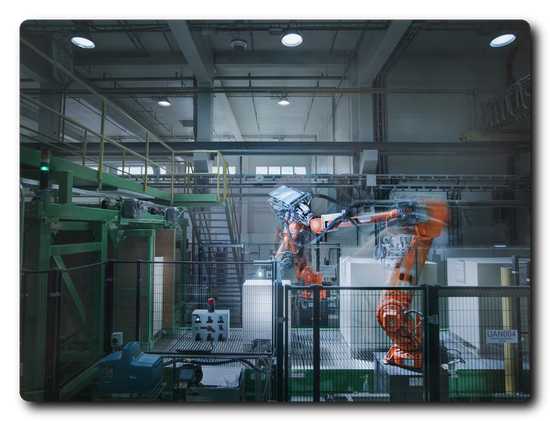 Metsä Board - Simpele - Mill portrait - Sheet labeling
Metsä Board - Simpele - Mill portrait - Sheet labeling
Metsä Board’s pilot project focuses on the management of spare parts’ data content, the goal being to unify and expand the master data of spare part names with the help of automation and artificial intelligence. If successful, the project would reduce maintenance costs significantly and the technology could also be applied to the needs of other business areas.
“We’re looking forward to the experimental concept development for increasing the productivity of mills. When we combine a mill’s systems, the data online and the know-how of our experts, we can expect new and so far unforeseen opportunities,” says Maintenance Director Perttu Vikman from Metsä Board.
The total volume of SEED project is approximately EUR 7 million. Its main sponsor is Business Finland. When the project kicked off, there were a total of 20 companies involved.
Metsä Board
www.metsaboard.com
Metsä Board is a leading European producer of premium fresh fibre paperboards including folding boxboards, food service boards and white kraftliners. Our lightweight paperboards are developed to provide better, safer and more sustainable solutions for consumer goods as well as retail-ready and food service applications. We work together with our customers on a global scale to innovate solutions for better consumer experiences with less environmental impact. The pure fresh fibres Metsä Board uses are a renewable resource, traceable to origin in sustainably managed northern forests.
The global sales network of Metsä Board supports customers worldwide, including brand owners, retailers, converters and merchants. In 2018, the company’s sales totalled EUR 1.9 billion, and it has approximately 2,400 employees. Metsä Board, part of Metsä Group, is listed on the Nasdaq Helsinki.
Metsä Group
www.metsagroup.com
Metsä Group is a forerunner in sustainable bioeconomy utilising renewable wood from sustainably managed northern forests. Metsä Group focuses on wood supply and forest services, wood products, pulp, fresh fibre paperboards and tissue and greaseproof papers.
In 2018, Metsä Group’s sales totalled EUR 5.7 billion, and it employs approximately 9,300 people. Metsäliitto Cooperative is the parent company of Metsä Group and is owned by approximately 103,000 Finnish forest owners.
